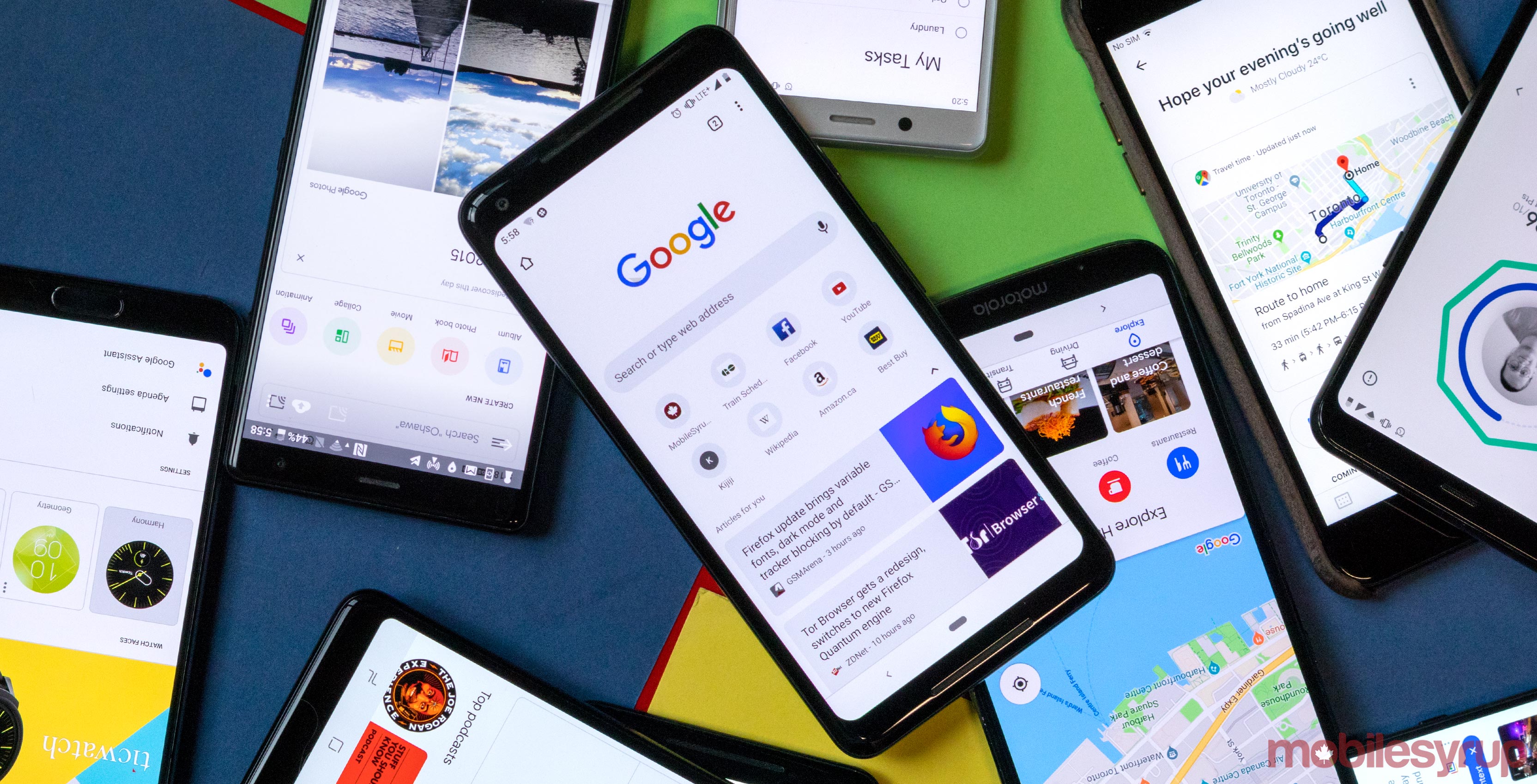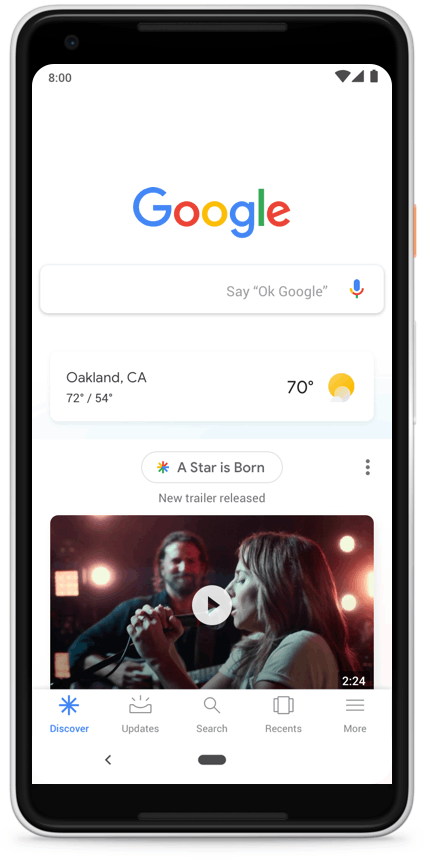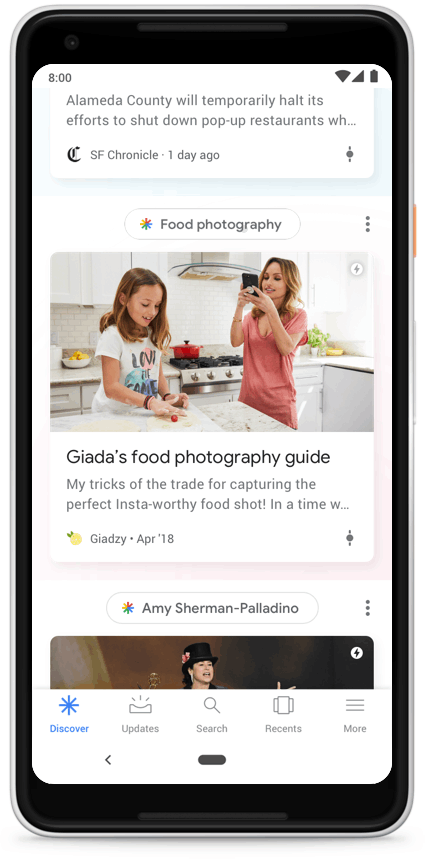
Google is celebrating its 20th anniversary by launching several new features for search.
First and foremost, the Mountain View-based search giant is revamping the Google Feed with a new name and home. Now called ‘Discover,’ users can access it from all mobile browsers as part of the Google search page.
Furthermore, Discover is about more than just new, relevant content. Google says Discover will work to find stuff that is new to you, even if it’s not new to the web. To make sure Discover is working for you, users will be able to control content they see.
See a card with something you like? Tap the control slider in the bottom right corner of the card and select more. Discover will make sure to gather more of that content for you, says Google.

Additionally, Discover now allows users to view content multilingually. For example, if you enjoy reading sports in English and recipes in Spanish, you can set that up in Discover. However, this feature is only available in the U.S. for now and will launch in other countries and languages soon, according to Google.
Finally, Discover sports a new look reminiscent of Google News. Discover will also contextualize items in the feed by adding topic bubbles so you can see why something is in your feed.
More visual search
Additionally, the search giant wants to make looking for something online a more visual experience. Google will use computer vision to add more visuals to search.
Along with that, the company is using the AMP web standard to create ‘Stories.’ These will appear in search results alongside ‘featured videos’ containing an auto-advancing carousel of video sections relevant to your search query.
Google Images is getting tweaked as well. Image search will have a new UI that shows off more ‘web content’ in a search. This includes specific page information on the results page. Users can expect this new user interface to roll out to desktop search on Thursday, September 27th.
Google is also building its Lens project into Image search on mobile too. Users will be able to tap the Lens icon to scan an image and perform a search of it. Users can also crop into specific parts of an image. For example, you could select a bookshelf in the background of an image and perform a search using Lens. Lens will provide links to purchase the bookshelf.
Furthermore, Google is planning to power-up its SOS alerts by using AI to predict where flooding may occur. This feature is launching in India to start.
Search is more about the journey than the destination
Another change coming to Search is a new focus on improving results over multiple days. These changes fit into three categories: journeys, collections and topics.
Journeys will provide searches you’ve already made in your search box. Essentially, Google will put a card in the search box with parts of your search history. Along with the previous results, you’ll get related activity cards with sites you’ve previously visited.
Collections allow users to save searches. Google will use those saved searched to provide relevant, related results. Think of it as a Pinterest board, but made of your Google searches. This feature is coming later this fall.

Finally, Topics is a new layer for the Knowlege Graph — that box to the right of your search results with information about what you searched.
The new layer will provide more information on topics like astronomy, with options for users to dive deeper and learn more.
Circling back to the Discover feed, Google will apply the topics layer to the feed as well. That’s how the feed will present news and stories that may not be new but are relevant to you.
While all these changes to search and Discover will ultimately benefit users, the company didn’t address any of the privacy controversies surrounding it regarding search bias and other issues. People are increasingly concerned about their data, and these new features will undoubtedly bring new concerns and questions to light.
MobileSyrup may earn a commission from purchases made via our links, which helps fund the journalism we provide free on our website. These links do not influence our editorial content. Support us here.


